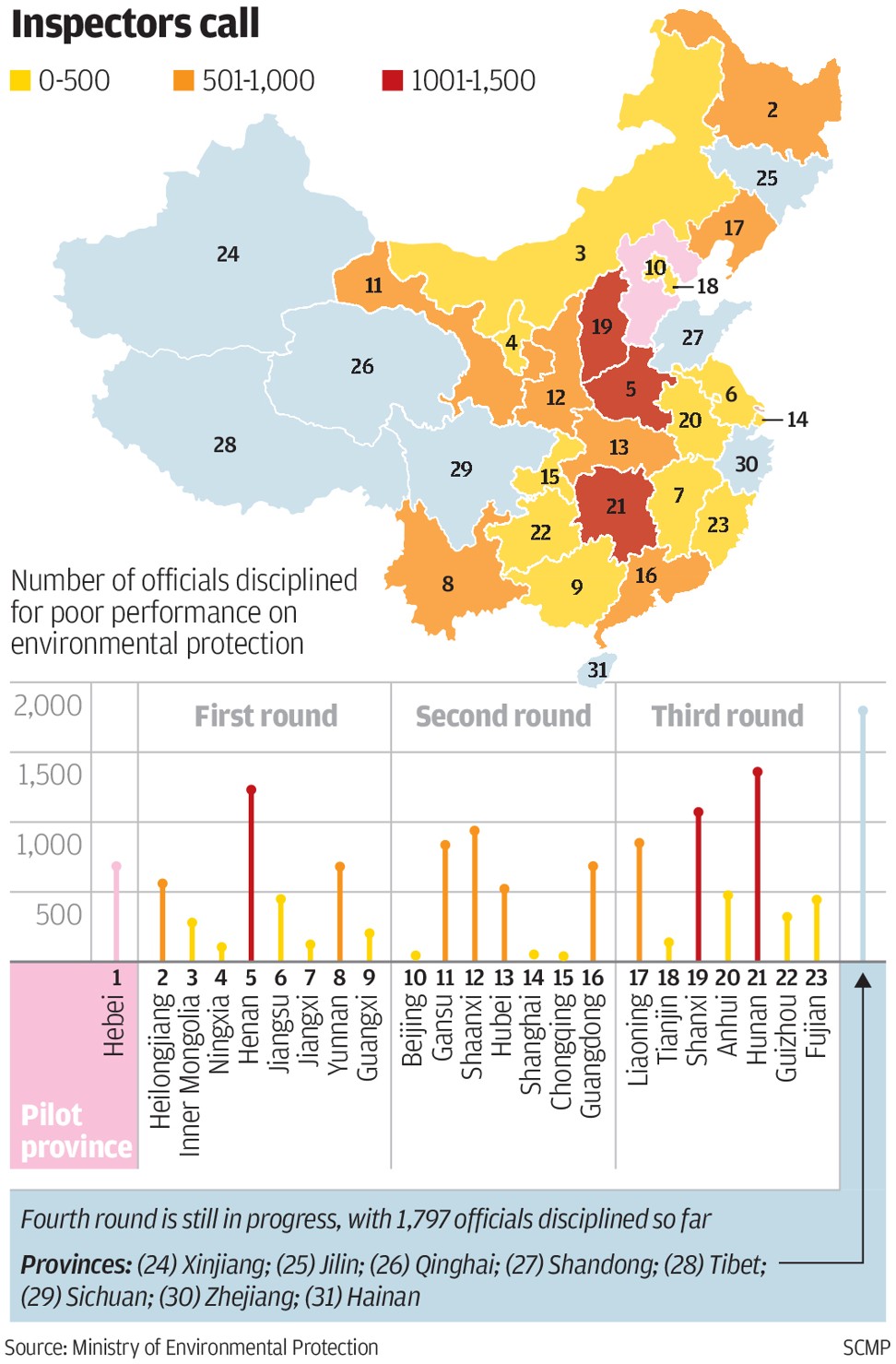
How will China’s sweeping pollution crackdown affect its economy?
While an unprecedented assault on polluters has seen thousands of companies punished and plants shut down, the economic implications are just unfolding
An unprecedented campaign against environmental pollution has led to 18,000 companies being punished across the country since last summer and more plant shutdowns. But the crackdown’s economic implications are just beginning to unfold.
While there’s no official data to measure the economic impact of Beijing’s drive for clean air and water, the government’s environmental campaign has become a key consideration in analysing China’s prices, employment, growth and economic structure, analysts said.
“This time China is very serious about environmental inspection,” Tianfeng Securities analysts led by Liu Yuhui, an economist with the Chinese Academy of Social Sciences, wrote in a note. “It will wield influence to the economy for a long term.”
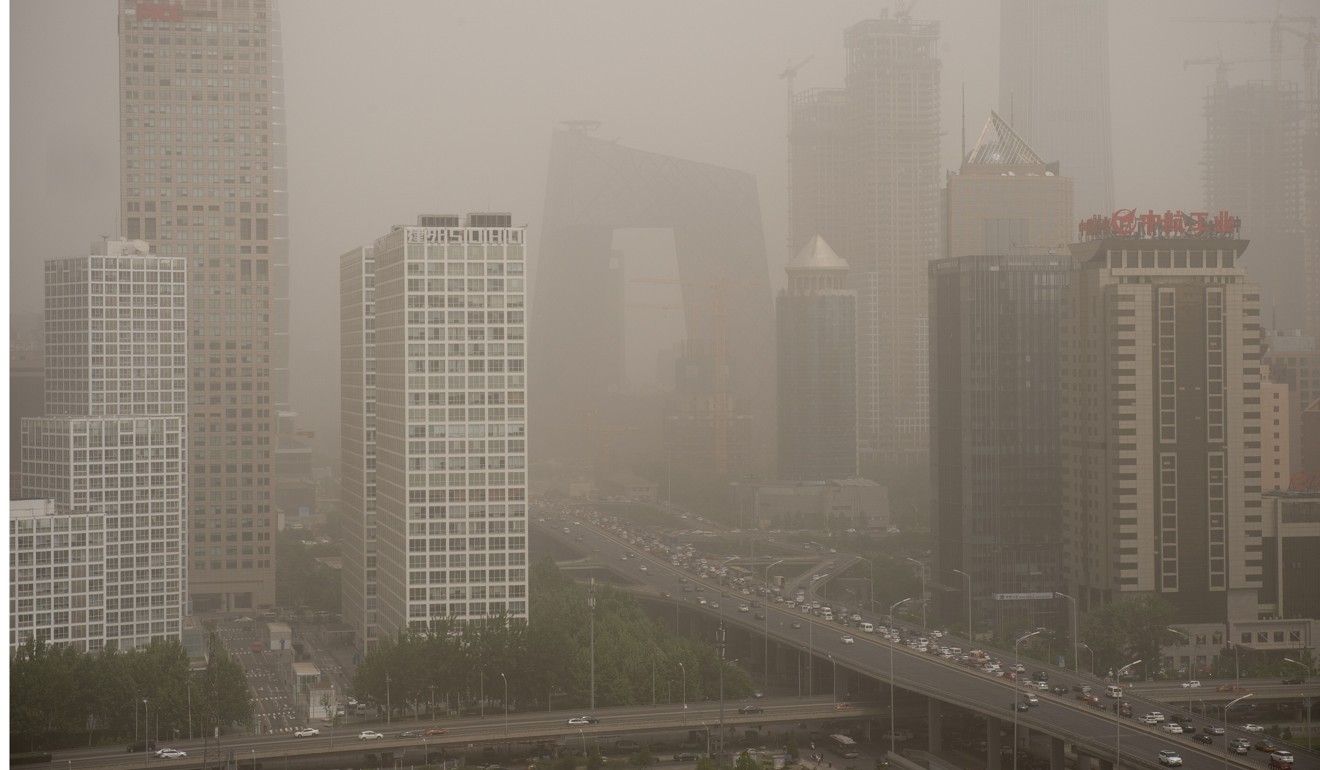
China intensified its environmental work after President Xi Jinping told the country’s provincial governors and ministers in July that pollution treatment is one of his top three priorities for the coming years, along with controlling financial risk and reducing poverty.
An army of 5,600 inspectors, from not only China’s environment ministry but also the Communist Party’s anti-graft watchdog and personnel unit, were dispatched to the provinces to check whether local cadres were doing their jobs to protect the environment. This unprecedented action caused many local officials to overreact by shutting down all possible pollutant sources.
Liu and his colleagues concluded that China will sacrifice 0.2 percentage points in economic growth this year for the sake of having clean air around Beijing, Tianjin and Hebei alone and about 40,000 workers will lose their jobs.
Prices of Chinese commodities are surging thanks to supply limits tied to environmental restraints.
China’s Producer Price Index inflation rose 6.3 per cent year on year in August, up from 5.5 per cent in July. Prices of coal, steel, non-ferrous metals, petroleum and chemical products rose strongly, partly because these industries are easy targets for the pollution crackdown.
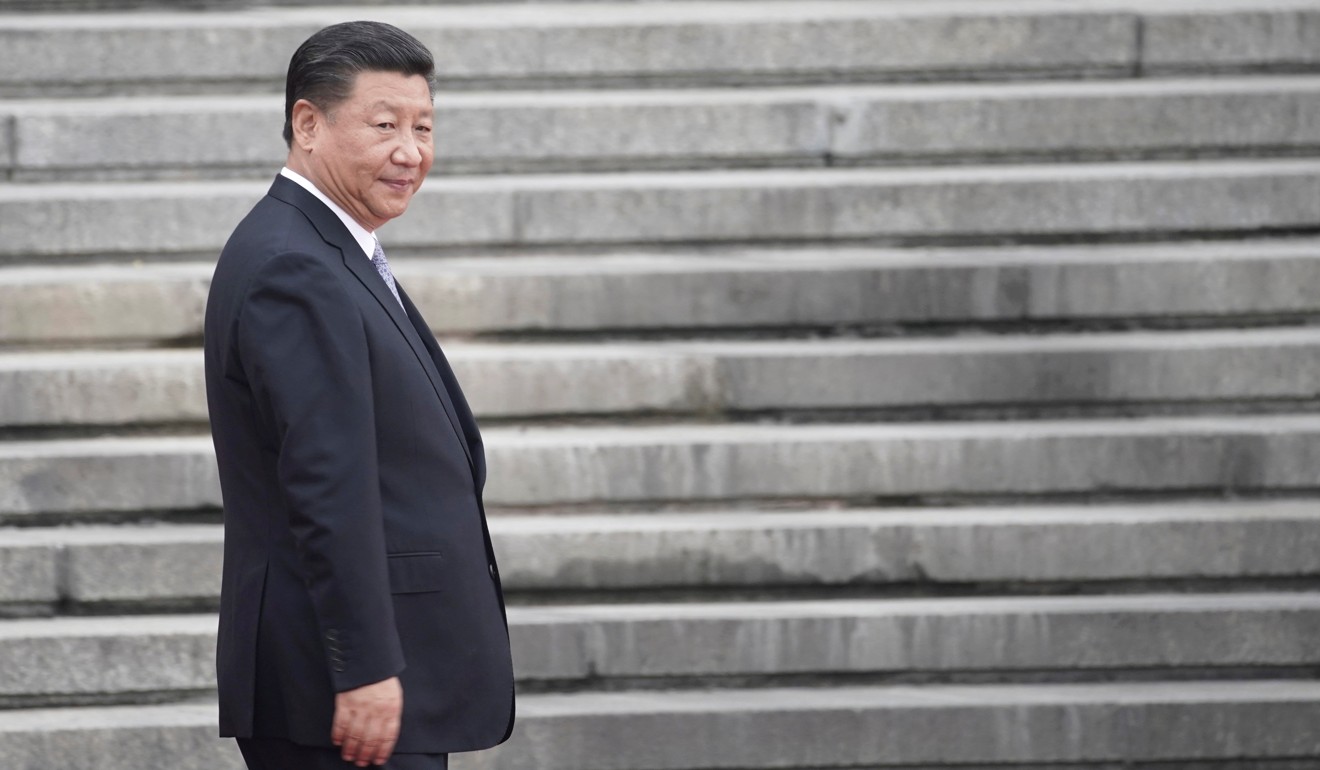
After grappling for years with excess industrial products and depressed input prices, China is now reporting supply shortages in sectors ranging from pesticides to coke, the China Petroleum and Chemical Industry Association recently stated on its website.
Xu Gao, chief economist with China Everbright Securities Asset Management Co, said prices of low-end manufactured products will rise in accord with the government’s strict environmental requirements, and the “environment curbs will be in place for a long time”.
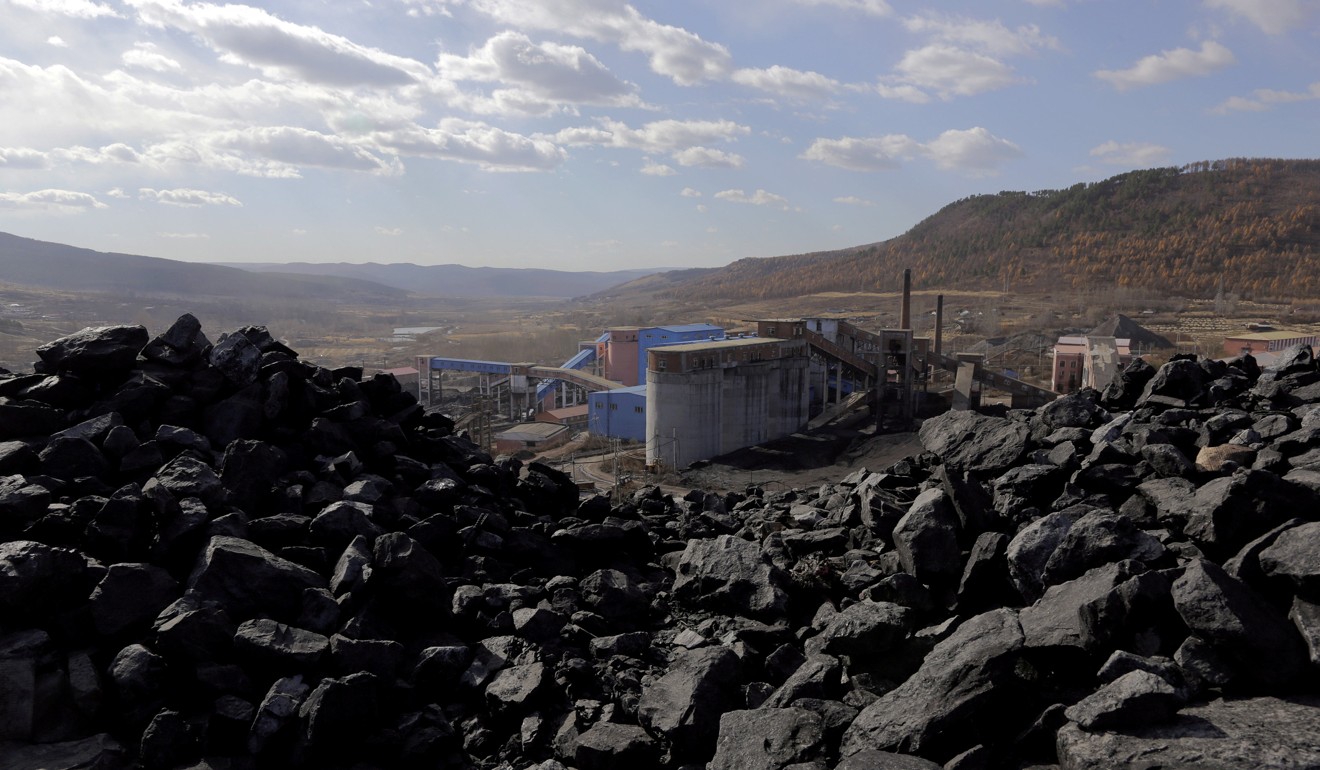
“It will change the landscape of the economic structure with low-end polluted industries replaced by more environment friendly and higher-end industries,” Xu said.
Private and small businesses in China’s polluting sectors are bearing the brunt of the change.
At the Red Star Macalline furniture and building materials mall in Beijing, many merchants said they would not be able to deliver goods in time if production involved baked painting, a process targeted by local environment police.
“All our plants in Tianjin have been shut down recently, [whether] they meet environmental requirements or not,” Zhao Qijun, a sales manager for a radiator maker said in his shop at the mall. Zhao said he expected the curbs on baked painting, a necessary step for his products, to relax after the 19th party congress, a key communist gathering expected to start on October 18.
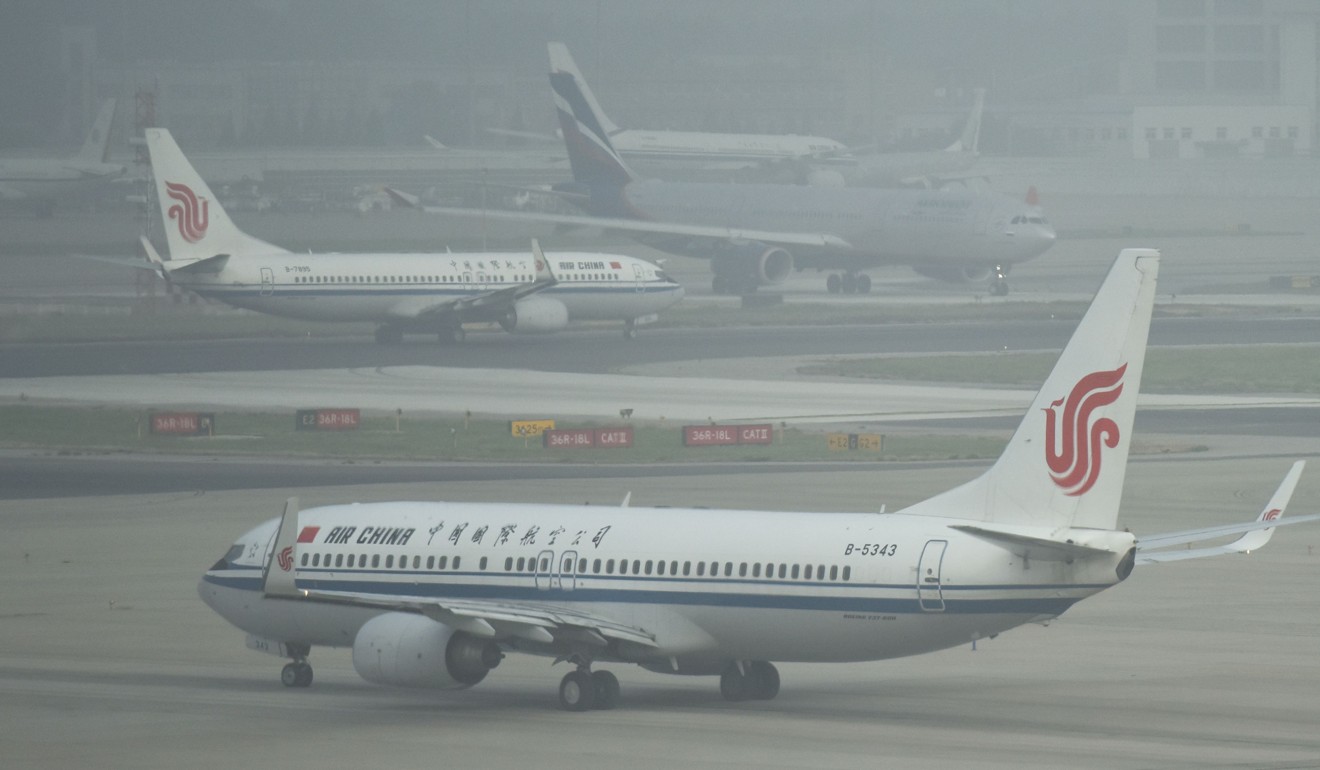
Li Yinhua, a saleswoman for an aluminium window frames business, said her company in Tongzhou in the Beijing suburbs is subject to the same environmental restrictions.
“Our company operates one day and closes on the next day ... now the average delivery period is prolonged to 30 days, or double the days needed in the past,” she said.
The clean-up effort has been particularly harsh in Beijing, Tianjin and 26 cities around the two municipalities notorious for smog. China’s Ministry of Environmental Protection this winter aims to cut average PM2.5 pollutant density by 15 per cent from a year ago.
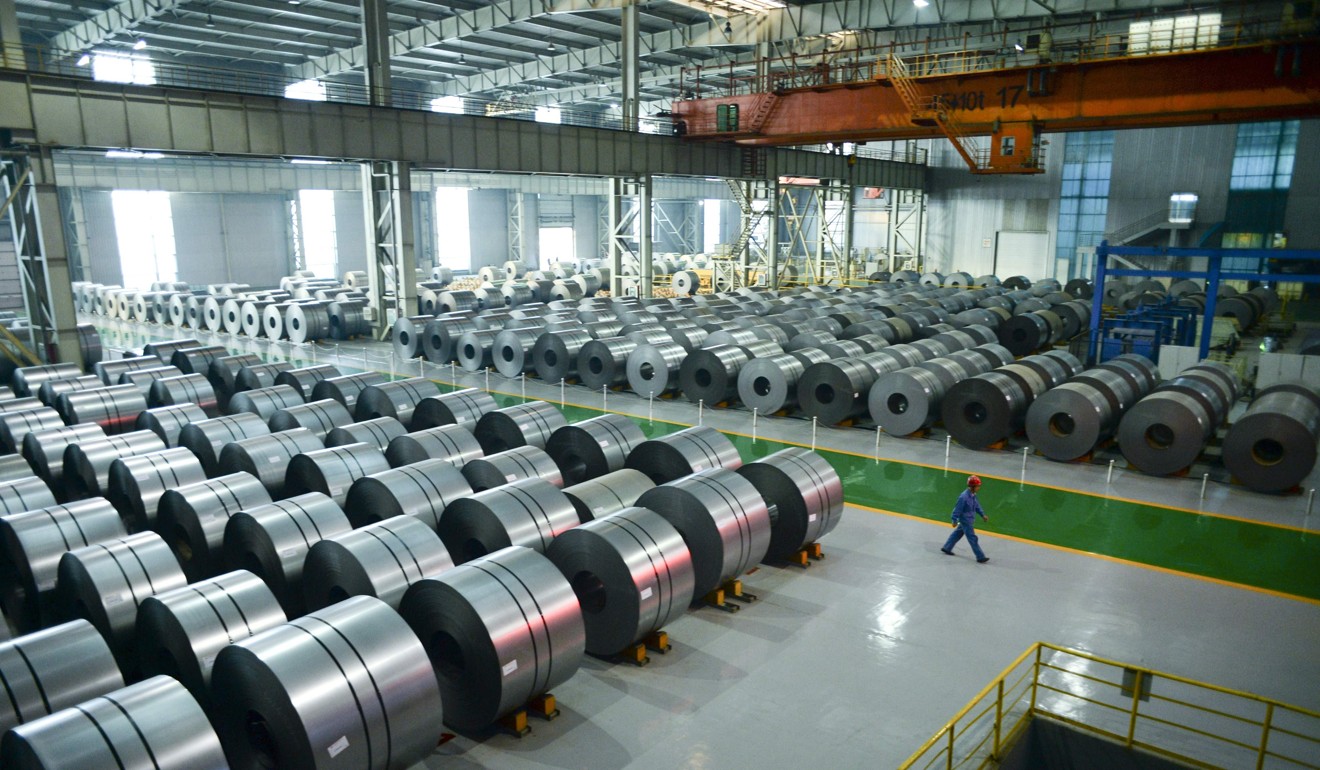
A Tianjin official who declined to be named told the South China Morning Post that many plants are affected. All bake painting plants were told to stop production.
Local governments were so aggressive in shutting down polluting facilities that the environment ministry had to step in, asking local authorities not to blindly shut down plants that could meet environmental standards.
Sheng Hong, an economist with Unirule Institute of Economics in Beijing, said: “Many small and medium private companies will fall victim to such stern administrative measures, while state-owned enterprises will be intact as backed by their strong political assets.”


